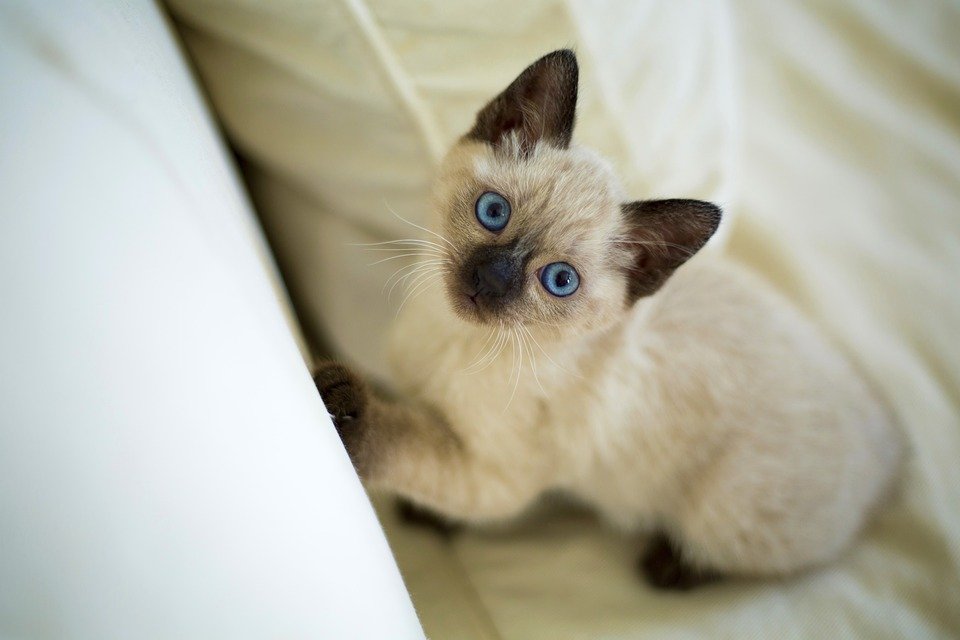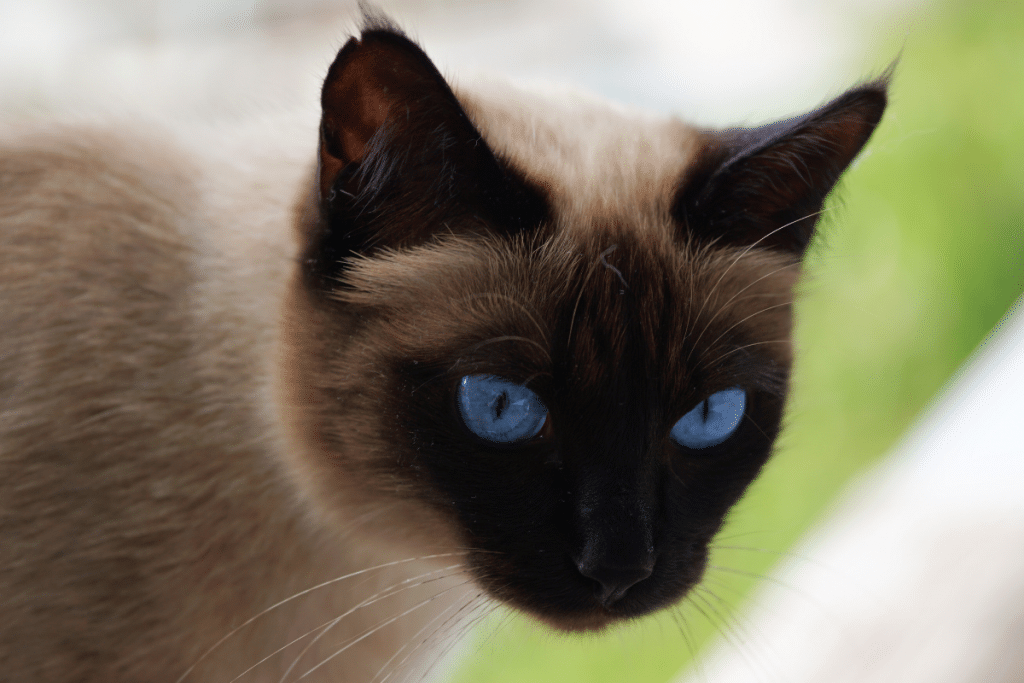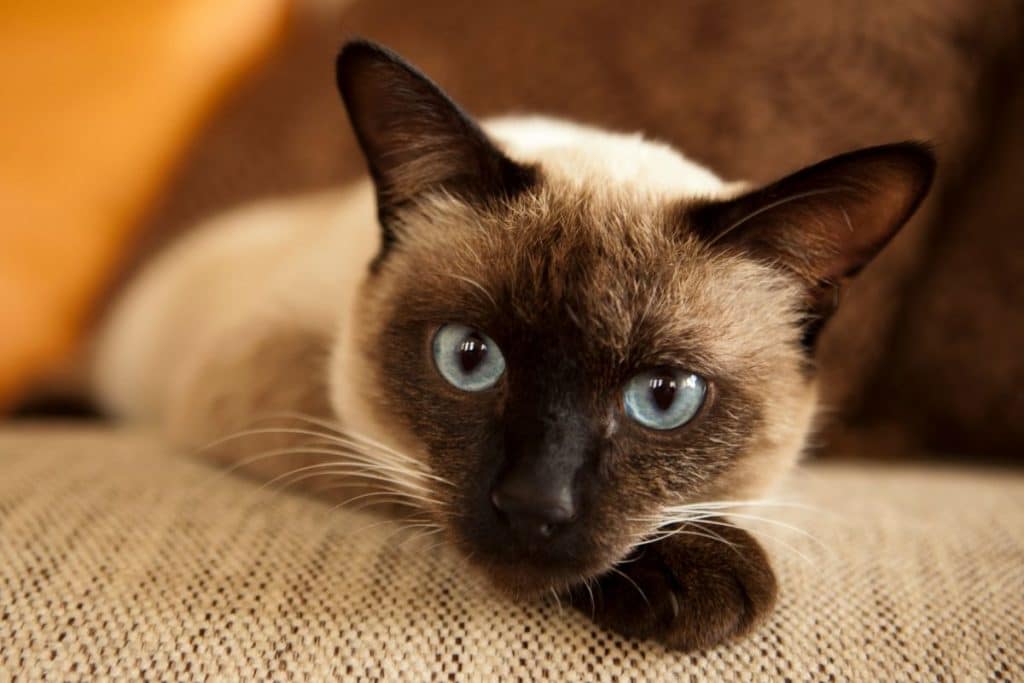As a passionate cat lover, you may already know a lot about different cat breeds, but the sleek and tall Siamese cats are different. The Siamese cats have been bred to have a lean, muscular body and a thin triangular jaw, which adds uniqueness to the cat’s breed. However, these distinctive features are combined with a few health problems, including a delicate digestive system.
Siamese cats may have sensitive stomachs due to food allergies. However, several health conditions, including esophageal hypomobility, pyloric stenosis, and adenocarcinoma, can also be an underlying cause of sensitive stomach for your Siamese cat. Fixing your Siamese cat’s sensitive stomach usually involves some trial and error, which starts with the food but, if the symptoms of a sensitive stomach do not subside, you may have to work with the vet and change some other things to see if it improves their condition.
Signs That Your Siamese Cat Has a Sensitive Stomach
Cats have a sensitive stomach, but Siamese cats show clinical signs when they suffer from digestion problems. While an occasional episode of vomiting or diarrhea may not indicate some serious underlying issue, if your Siamese cat frequently experiences recurring episodes of an upset stomach, you should also watch out for the following symptoms.
- Loss of appetite and weight,
- Persistently soft stool,
- Several episodes of vomiting and diarrhea that persist for more than 30 days,
- Persistent refusal to eat food,
- Constant crying as an indication of discomfort and pain,
- Lethargy and fatigue, and
- Persistent vomiting throughout the day without any intake of food or water.
If you observe any or all of the above signs, it can indicate that your Siamese cat has a sensitive stomach. Hence, it is best to consult your vet without delaying it any further. Your vet will likely perform blood tests and a few radiological exams to identify the underlying cause of sensitive stomach for your Siamese cat.
Why Do Siamese Cats Have Sensitive Stomach?
Before we dig in deep to learn how to care for your Siamese cat with a sensitive stomach, let’s look at the most intriguing question, which is, “why do Siamese cats have a sensitive stomach?”
Usually, you can find the answer to this question on nutritional grounds. Siamese cats have a unique body structure, and hence they need food that can help maintain their muscle mass without weight gain. Hence, it requires a specific type of feed that most Siamese pet parents are unaware of. When your Siamese cat doesn’t get the specific type of feed, it may put on weight and develop stomach-related issues.
Often the combination of food that you give to your Siamese cat may be the culprit. Most Siamese cats prefer a combination of wet and dry food. Changing the combination may be one of the factors that can lead to a sensitive stomach.
Another possible reason for a Siamese cat’s sensitive stomach is stress. Siamese cats are an intelligent cat breed that can experience separation anxiety. Siamese cats also experience alleviated stress levels in case of changes in the environment.
And while food and stress are some of the potential causes of a sensitive stomach, sometimes, the problem goes deeper, and a sensitive stomach may indicate an underlying health condition. If you notice any of the signs of a sensitive stomach and find your Siamese cat vomiting several times a day or refusing to eat food for a 24 to 48 hour period, it’s best to schedule a checkup with your vet as soon as possible. Some of the underlying health issues that can be linked to your Siamese cat’s sensitive stomach include
Esophageal Hypo Mobility
Esophageal hypomobility is a health condition characterized by weak muscular activity due to which food and liquid do not pass down the esophagus easily. It is not a stomach issue; however, since the condition is associated with a digestive tract disorder, it affects your cat’s ability to eat and process its feed.
Pyloric Stenosis
Pyloric stenosis is another health condition that leads to a sensitive stomach and associated problems. The disease typically affects Siamese kittens and causes the narrowing of the stomach, which makes it impossible to digest the food appropriately. Hence, your Siamese cat experiences frequent vomiting and even loss of weight.
Adenocarcinomas
Some of the cancers of the digestive tract also lead to a sensitive stomach. Adenocarcinomas are cancer found in the small intestine and can lead to several issues related to digestion. While some Siamese cats may have a genetic predisposition to this condition, cancer can affect any Siamese cat.
Intestinal Worms
Another condition of the digestive tract that leads to a sensitive stomach is intestinal worms. If your Siamese cat spends a lot of time outdoors, intestinal worms could be one of the reasons for a sensitive stomach.
Hepatic Amyloidosis
A rare health condition that can lead to a sensitive stomach is hepatic amyloidosis. While it is an uncommon disease, it involves the deposits of abnormal proteins in the liver, leading to nausea and vomiting, a common sign of a sensitive stomach.
Caring for Siamese Cats with Sensitive Stomachs
Now that you already know about the signs and causes of the sensitive stomach in Siamese cats, let’s learn more about how you can care for your Siamese cats with a sensitive stomach.
Dietary Modifications
If you notice signs of a sensitive stomach in your Siamese cat, perhaps the first thing you need to care about is your Siamese cat’s diet. Siamese cats need a balanced diet to thrive. Hence, their diet should be a combination of wet and dry foods and fresh and homemade food.
Boiled and deboned chicken makes the best diet for Siamese cats with sensitive stomachs. But the best food for your Siamese cat still depends on several other factors, including your feline’s age, health condition, and food preferences. Moreover, don’t forget to consult the vet before making any changes to your Siamese cat’s diet.
Some of the best foods for your Siamese cat with sensitive stomachs include
Pumpkin
It might come as a surprise to many pet parents, but pumpkins make great food for your feline with a sensitive stomach. Intake of pumpkin helps with weight control as well as manage symptoms such as diarrhea and constipation. Make sure you go for the canned pumpkin that’s free of additives and sugar. Never give raw pumpkin or pumpkin skin to your Siamese cat. Moreover, it’s best to consult your vet before introducing pumpkin to your Siamese cat’s diet.
Boiled Chicken
Boiled chicken makes a great meal for your Siamese cat. It is rich in protein and provides adequate nutrition to your feline. Make sure you boil, debone, and cut the chicken into small chunks. You can add in rice to top up the meal with fiber. However, reserve this meal when your Siamese cat is experiencing episodes of an upset stomach as your pet can quickly become bored of chicken’s bland taste. Moreover, persistently giving high fiber content to your cat may lead to health issues such as constipation in the long run.
Boiled Eggs
You can add boiled eggs to your feline diet to replace animal protein. Moreover, boiled eggs are a great source of vitamins and protein that can help your Siamese cat regain energy lost due to persistent diarrhea and vomiting. Make sure you never feed raw eggs to your Siamese cat and limit the intake of boiled eggs to once or twice a week.
Lifestyle Modifications
Apart from dietary changes, some lifestyle modifications can also help your Siamese cat with a sensitive stomach. Make sure to incorporate lifestyle changes that help alleviate stress and allow you to create a stress-free environment for your feline, as stress is also one of the potential causes of a sensitive stomach.
You are the most important person for your Siamese cat, so make sure you spend a lot of time playing with your feline. Moreover, also try to incorporate regular physical activity in your Siamese cat’s schedule.
Furthermore, try and keep your feline busy while you are away, so your Siamese cat doesn’t experience separation anxiety. You can get scratch pads and cat trees for your Siamese cat to stay occupied and not get bored while you are not around.
Lastly, groom your Siamese cat regularly. One of the reasons why your Siamese cat may have a sensitive stomach is the intake of hair. By grooming your Siamese cat regularly, you can reduce the intake of hair, which eventually helps reduce the risk of a sensitive stomach.
Schedule Regular Vet Visits
If you have a Siamese cat with a sensitive stomach, make sure to schedule regular vet visits. Your young Siamese kittens and older feline need a regular check-up every six months, whereas a healthy adult Siamese cat may go without a checkup for a year. If your Siamese cat is avoiding food or persistently showing signs of a sensitive stomach, do not delay your cat’s wellness checkup. Timely diagnosis of any underlying health condition or presence of worms can help reduce the length of treatment and allow your feline to feel better quickly.
The Bottom Line
There are several reasons why your Siamese cat may have a sensitive stomach. While the condition is usually linked to stress and food, an underlying health condition may be the culprit. Hence, it is best to consult with the vet as soon as you notice any signs of a sensitive stomach. And remember that your Siamese cat is an intellectual cat breed that thrives on social connection, so don’t forget to give your pet lots of love while it experiences a sensitive stomach.



